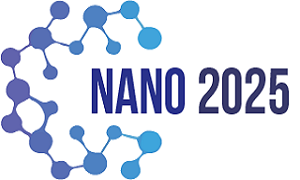Nano 2025

G. B. Pant University of Agriculture & Technology, India
Abstract:
In current digital era, managing e-waste has
become universal concern. From the viewpoint of persisting lacuna of e-waste
managing methods, the current study is designed to fabricate an eco-friendly
e-waste treatment with native soil bacteria employing an enrichment culture
method. In the presence of e-waste, indigenous soil microbes were stimulated to
degrade e-waste. Microbial cultures were isolated using enrichment medium
containing acrylonitrile-butadiene styrene (ABS) as the primary carbon source. Priestia
aryabhattai MGP1 was found to be the most dominant e-polymer degrading
bacterial isolate, as it was reported to degrade ABS plastic in disposed-off
television casings. Furthermore, to increase degradation potential of MGP1,
Response Surface Methodology (RSM) was adopted which resulted in optimized
conditions (pH 7, shaking-speed 120 rpm, and temperature 30 ◦C), for maximum
degradation (18.88%) after 2 months. The structural changes induced by
microbial treatment were demonstrated by comparing the findings of Field
emission scanning electron microscopy (FESEM) images and Fourier Transform
Infrared (FTIR) spectra confirming the disappearance of ≡ C─H peaks along with
C–H, C=C and C ≡N bond destabilization following degradation. Energy-dispersive
X-ray (EDX) analyzers of the native and decomposed e-polymer samples revealed a
considerable loss in elemental weight % of oxygen by 8.4% and silica by 0.5%.
Magnesium, aluminium and chlorine which were previously present in the
untreated sample, were also removed after treatment by the bacterial action.
When seeds of Vigna radiata were screened using treated soil in the
presence of both e-waste and the chosen potent bacterial strain, it was also
discovered that there was reduced toxicity in terms of improved germination and
growth metrics as a phytotoxicity criterion. Nanoparticles were applied to
investigate its effect on the biodegradation ability of the best suited
bacterial strain.
Biography:
Moumita Chakraborty, Ph.D., is an alumna of G.B. Pant University of Agriculture & Technology, Pantnagar, Uttarakhand; having completed her doctoral studies in Environmental Science in 2023. Her research focused on "In-vitro studies on nanoparticle-mediated biodegradation of electronic waste by native bacteria," shedding light on innovative solutions to tackle the pressing issue of electronic waste management. With a background spanning four years in research and development, Moumita has honed her expertise in a myriad of analytical techniques, including UV-spectrophotometry, FTIR, and FESEM-EDX. Currently serving as a Senior Environment Executive at Kryfs Power Components Ltd., Moumita leads with passion and dedication in a project under the RDSS scheme, generously funded by the esteemed Asian Development Bank.
